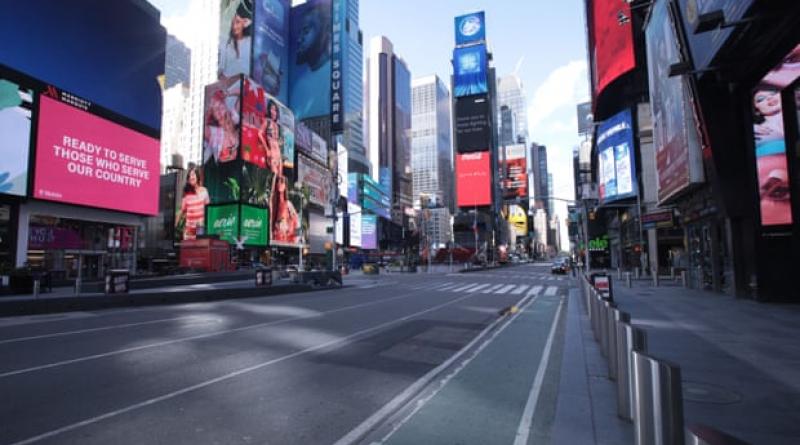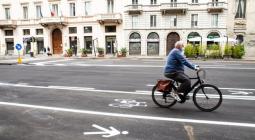World cannot return to 'business as usual' after Covid-19, say mayors.

City leaders publish ‘statement of principles’ putting climate action at centre of recovery plans.
Mayors from many of the world’s leading cities have warned there can be no return to “business as usual” in the aftermath of the coronavirus crisis if humanity is to escape catastrophic climate breakdown.
City leaders representing more than 750 million people have published a “statement of principles”, which commits them to putting greater equality and climate resilience at the heart of their recovery plans.
Bill de Blasio, the mayor of New York City and one of the signatories to the statement, said: “Half-measures that maintain the status quo won’t move the needle or protect us from the next crisis.
“We need a new deal for these times – a massive transformation that rebuilds lives, promotes equality and prevents the next economic, health or climate crisis.”
Many cities have already announced measures to support a low-carbon, sustainable recovery, from hundreds of miles of new bike lanes in Milan and Mexico City to widening pavements and pedestrianising neighbourhoods in New York and Seattle.
In London, Sadiq Khan announced plans on Wednesday to give more space to cyclists and pedestrians across the capital in an effort to encourage “green and sustainable travel” and prevent a spike in car use and pollution after the lockdown.
The move came as Transport for London modelling revealed there could be a 10-fold increase in cycling, and up to five times the amount of walking, compared with pre-coronavirus levels, if people returned to work but avoided public transport.
Khan, who is vice-chair of the C40 group, said he was determined to “build a better future” in the aftermath of the pandemic.
“Covid-19 has exposed the inequality in our society and deep flaws in our economy, which fail people from deprived communities more than anyone else,” he said.
“We need to come out of this embracing a new normal and with a renewed drive to address the climate emergency.”
In Greater Manchester, council leaders have unveiled plans to give more space for people walking and cycling across the region. With £5m of funding from the mayor, local authorities are planning a range of measures from extending pavements to creating one-way streets, removing through-traffic from residential neighbourhoods and building extra cycle lanes.
Last week, mayors from cities in Europe, the US and Africa held talks as part of a newly formed C40 economic task force. They agreed to coordinate efforts to map out plans to support a low-carbon, sustainable recovery from the crisis.
Mark Watts, the chief executive of C40, said mayors had a lot of power to protect their citizens and shape the direction of the recovery. “There is now a hell of a lot of collaboration among very powerful politicians who do think a green economic recovery is absolutely essential,” he said.
“We are talking about collectively creating funds that they all put money into, which would then support electric vehicles, support rollout of cycle lanes, support retrofitting of buildings … C40 cities using the hundreds of millions of dollars in their pension funds for this and getting very good long-term returns.”
The statement of principles has so far been signed by mayors representing 33 world cities from Los Angeles to Lisbon, São Paulo to Seoul, Melbourne to Mexico City.
The statement warns that the recovery from Covid-19 “should not be a return to ‘business as usual’ – because that is a world on track for 3C or more of overheating.”
It also states that immediate action on the climate will “accelerate economic recovery and enhance social equity, through the use of new technologies and the creation of new industries and new jobs”.
Mike Bloomberg, the C40 board president and a former mayor of New York City, said: “This taskforce is committed to helping city leaders as they work on economic recovery in ways that lead us forward into the future, not back into the past. The principles we’ve outlined will guide our efforts to develop a new normal – one that is greener, healthier, and more prosperous for everyone.”
7 May 2020
The Guardian




